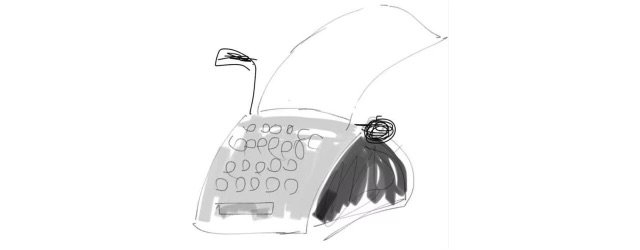One of the questions that people invariably ask people who call themselves writers is: What are your favourite books?
Simple question. But one I find impossible to answer satisfactorily because my reading life is ephemeral. It changes as I change.
There are books I didn't get when I was 20 that I understand now; there are books that I don't get now that I would have when I was 20. There are books that once may have been deeply important to me that I now, for a variety of reasons, cannot read. For instance, Michael Farrell's debut collection of poetry, Ode Ode, is important to me because I read it while standing in the rain outside a hospital after the loss of a child through stillbirth. The white noise of Farrell's poems were in perfect sync with the white noise in my head. As a consequence, Ode Ode is near and dear to me, but I can't bring myself to read it now. Don't want to go there.
A question I can answer better than 'name your favourite books' has to do with first impressions. What are the books or poems that, on first reading sent a vibration through me? Made me hum like a tuning fork?
Those books I can reel off. And it is a long list that I won't go into now, although some of the names that go with that list include Emily Bronte, Joseph Conrad, Toni Morrison, Emily Dickinson, Robert Frost, Peter Carey, Tim Winton, Frank Bidart, Raymond Carver, Judith Wright, Laurent Binet, Milan Kundera ... I'll stop there because it's making me anxious just typing those names. You see, I know I'm leaving out names that should be in there and would have to turn my shelves upside down to come up with a more representative list.
Anyway, a Richard Ford novel is right up there on that list. It's a novel I read back in 1989: The Sportswriter. I was 20, had written and thrown away a novel, was trying to crack the literary magazines and get my first poem published and was working as a journalist for a tabloid newspaper in Melbourne. Ford's protagonist in The Sportswriter is Frank Bascomb, a former short-story writer who fell into journalism. He was in his thirties, divorced and had lost a son. He was nothing like I was at the time but something like what I hoped to become. Reading those pages made me hum in ways beyond words, as great books should. The first-person voice of Frank was half wise, half wise-arse. I loved him. Loved the book. And loved its sequel: Independence Day.
Would I feel the same if I read The Sportswriter now? Probably not. I've reread the novel and enjoyed it. Didn't feel that old hum, though. Didn't feel anything.
There are a few reasons for that. I resented the third Bascomb novel, Lay of the Land. Found it overwritten. A runaway novel in need of a gimlet-eyed editor. It was about as necessary as Rocky III. Or the latest Hollywood addition to the comic-book universe of Marvel (don't get me wrong, I love graphic novels). And that experience of a sub-par Bascomb novel tainted my enjoyment of the first two novels.
Then came the fourth Bascomb novel: Let Me Be Frank With You.
I reviewed this book for Australian Book Review a few months back. Looking back, though, I feel I should have gone harder, because, although the fourth instalment of The Sportswriter universe is better than the third (and mercifully concise) it is, on reflection, unnecessary.
I'm sure there is an audience for Frank Bascomb. I'm sure people want to follow Frank to the precipice of the grave, but the question has to be asked: Is it a book that needed to be written?
I'm my view, the answer is no. The truth is the Bascombe story would have been better off finishing with Independence Day, which is a masterpiece.
Richard Ford is a wonderful writer. I look forward to his books, but I wish he'd quit Frank Bascomb back in the 1990s.



